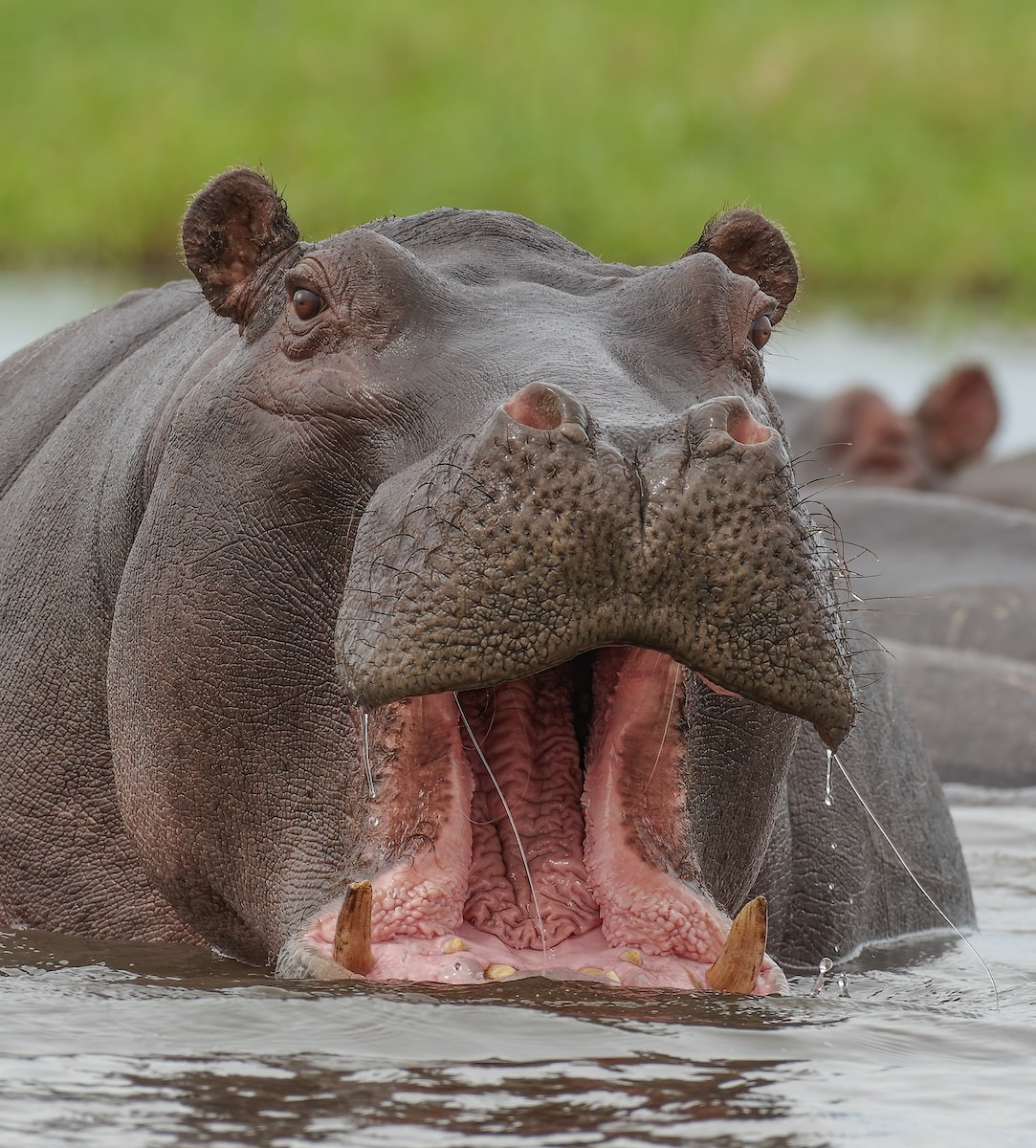Why Do Hippos Attack Humans: Unveiling The Truth Behind Hippo Aggression
Hippos are often perceived as gentle giants, but the reality is far from it. These massive creatures are responsible for more human fatalities in Africa than almost any other large animal. Understanding why hippos attack humans is crucial for coexistence and safety. In this article, we will delve into the reasons behind hippo aggression, explore fascinating facts, and provide practical tips to stay safe in hippo territory.
Hippos are known for their immense size, weighing up to 3,300 pounds and measuring over 11 feet in length. Despite their slow appearance, they can move surprisingly fast both on land and in water. This makes them one of the most dangerous animals in Africa. Every year, hundreds of people fall victim to hippo attacks, making it essential to understand their behavior and motivations.
In this article, we will explore the reasons behind hippo aggression, their territorial instincts, and how humans can minimize the risk of encountering an aggressive hippo. Whether you're a wildlife enthusiast, traveler, or simply curious about these majestic creatures, this article will provide valuable insights into the world of hippos and their interactions with humans.
Read also:Discovering The Life Of Dwyane Wades Wife A Journey Beyond The Spotlight
Table of Contents
- Why Do Hippos Attack Humans?
- Territorial Behavior of Hippos
- Statistics on Hippo Attacks
- Biological Factors Influencing Hippo Aggression
- Human-Hippo Conflicts
- Tips for Staying Safe Around Hippos
- Frequently Asked Questions
- The Importance of Hippo Conservation
- What Do Hippos Eat?
- Conclusion
Why Do Hippos Attack Humans?
Hippos attack humans primarily due to their territorial nature and protective instincts. Despite their seemingly docile appearance, hippos are highly aggressive animals that view humans as potential threats, especially when they feel their territory or family is endangered. This aggression is not limited to humans; hippos are known to attack other animals, including crocodiles and even boats.
Key Reasons for Hippo Attacks:
- Defending their territory
- Protecting their young ones
- Fear or surprise when humans approach too closely
- Competition for resources like water and food
Understanding these reasons is crucial for reducing the likelihood of encounters and ensuring safety when in hippo-prone areas.
Territorial Behavior of Hippos
Understanding Hippo Territories
Hippos are highly territorial animals, especially males. They mark their territory by spreading dung and urine, a behavior known as "dung-showering." Male hippos are particularly aggressive when it comes to defending their domain, which can span up to 400 meters of riverbank. Any intrusion into this space, whether by other hippos or humans, can trigger an aggressive response.
Signs of Territorial Aggression
When a hippo feels threatened, it will often display warning signs before launching an attack. These signs include:
- Yawning (a display of their large teeth)
- Snorting or growling
- Charging towards the perceived threat
Recognizing these signs can help humans avoid dangerous situations and prevent potential conflicts.
Read also:Understanding 10501088108010891090 105310861074108610891077108310801095 1056108610891090 A Comprehensive Guide To Growth And Development
Statistics on Hippo Attacks
Hippos are responsible for more human fatalities in Africa than any other large animal. According to the African Wildlife Foundation, hippos kill an estimated 500 people annually. These attacks often occur in rural areas where people rely on rivers for fishing, washing, and collecting water, increasing the chances of human-hippo interactions.
Key Statistics:
- Approximately 500 human deaths per year
- Most attacks occur near water sources
- Adult male hippos are responsible for the majority of attacks
These numbers underscore the importance of understanding hippo behavior and taking precautions when living or traveling in hippo habitats.
Biological Factors Influencing Hippo Aggression
Physical Characteristics
Hippos possess several physical traits that make them formidable adversaries. Their massive size, powerful jaws, and sharp tusks enable them to inflict severe injuries on humans and other animals. Additionally, hippos can run at speeds of up to 19 miles per hour on land, making them surprisingly agile for their size.
Hormonal Influences
Hormonal changes, particularly during mating season, can increase aggression levels in hippos. Male hippos become more territorial and competitive during this time, leading to higher instances of aggressive behavior. Understanding these biological factors can help explain why hippos are more likely to attack humans during certain periods.
Human-Hippo Conflicts
Causes of Conflict
Human-hippo conflicts are primarily driven by habitat encroachment and competition for resources. As human populations grow, more people settle near water sources, increasing the likelihood of interactions with hippos. Additionally, activities such as fishing, farming, and washing clothes in rivers bring humans into close proximity with hippos, heightening the risk of conflict.
Solutions to Mitigate Conflict
Several strategies can help reduce human-hippo conflicts, including:
- Creating designated water access points away from hippo territories
- Implementing education programs to raise awareness about hippo behavior
- Using deterrents such as noise or barriers to keep hippos away from human settlements
By addressing the root causes of conflict, communities can coexist more peacefully with hippos and minimize the risk of attacks.
Tips for Staying Safe Around Hippos
When visiting areas with hippos, it's essential to take precautions to ensure your safety. Here are some practical tips:
- Keep a safe distance from hippos, both on land and in water
- Be aware of your surroundings and look for signs of hippo presence
- Never approach a hippo, even if it appears calm or uninterested
- Stay quiet and avoid sudden movements that could startle a hippo
- Use binoculars or cameras with zoom lenses to observe hippos from a distance
By following these guidelines, you can enjoy observing hippos while minimizing the risk of an aggressive encounter.
Frequently Asked Questions
Are Hippos More Dangerous Than Lions?
While lions are apex predators, hippos are responsible for more human fatalities in Africa. This is largely due to their territorial nature and proximity to human settlements near water sources.
Can Hippos Run Faster Than Humans?
Yes, hippos can run at speeds of up to 19 miles per hour, making them faster than most humans. Despite their size, hippos are surprisingly agile and can cover short distances quickly when necessary.
Do Hippos Attack Boats?
Yes, hippos are known to attack boats, especially if they feel threatened or territorial. It's important to maintain a safe distance from hippos when traveling by boat in their habitats.
The Importance of Hippo Conservation
Hippos play a vital role in maintaining the ecological balance of their habitats. Their grazing habits help maintain grasslands, while their dung enriches the soil and provides nutrients for aquatic life. However, hippos face numerous threats, including habitat loss, poaching, and climate change. Conserving hippos is crucial for preserving biodiversity and ensuring the survival of this iconic species.
What Do Hippos Eat?
Hippos are herbivores, primarily feeding on grass and other vegetation. Despite their massive size, they consume relatively small amounts of food compared to their body weight. Hippos can spend up to six hours grazing at night, consuming up to 80 pounds of grass in a single meal. Their diet plays a crucial role in maintaining the ecosystems they inhabit.
Conclusion
Hippos are fascinating creatures with complex behaviors and instincts. Understanding why hippos attack humans is essential for ensuring safety and promoting coexistence in shared habitats. By recognizing the signs of aggression, respecting their territory, and taking necessary precautions, humans can minimize the risk of encountering an aggressive hippo.
We encourage you to share this article with others to raise awareness about hippo behavior and safety tips. If you have any questions or would like to learn more about hippos, feel free to leave a comment below. Together, we can promote understanding and conservation of these incredible animals.
For further reading, explore our other articles on wildlife and conservation. Stay informed and stay safe when venturing into the wild!

